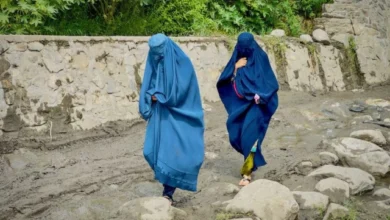Disability and Discrimination
Every kind of disability has a general set of signs and adverse effects on the physical health of a person.

Disability is defined broadly as ‘a physical or mental condition that limits a person’s movements, senses, or activities.’
There are many different kinds of disabilities, those affecting the senses, cerebral functions, mental health, and consequently, social relationships.
World Health Organization (WHO) has loosely grouped disabilities into three main categories: those that restrict participation in mainstream society, those that limit individual activity, and lastly, damage to a particular part of the body or its loss of function called an impairment.
Organizations over time have chosen to group them up to their convenience but it is doubtless that there are quite a large number of disabilities, discovered and undiscovered.
As of the World Report of Disability of 2011, 15% of the total world population has a certain disability which numerically constitutes more than a billion people in the world.
Unfortunately, in Pakistan, as of the last census in 1998, the figures for the number of differently-abled citizens are unclear which prevents fair budgeting in the first place.
International and National laws alike, the rights of differently-abled people are reserved equal to a typically abled human being.
However, that does not prevent societal vices from upsetting the lives of those who qualify as differently-abled.
Not only here are many different kinds of disabilities, but two people differently-abled in the same manner also may or may not have the same symptoms, effects, or coping mechanisms.
Every kind of disability has a general set of signs and adverse effects on the physical health of a person. Those are to be dealt with mostly by medical help.
However, being differently-abled can also mean, in one way or another, being dependent.
The inability of the individual may lead to silent spells, irritability, crankiness, and breakdowns.
In extreme cases, it may lead to chronic depression and resulting in anxiety and insomnia, suicidal tendencies, and a wide array of other mental health issues, further worsening the prevailing condition.
Unfortunately, even in this time and age, disabled persons face discrimination of all kinds.
This discrimination can be divided into two groups: ignorance and mockery of one’s disabilities and outright rejection and violence as a result of one’s disabilities.
Read Also
A Look at Ignored Oppression: Ageism
In the world we call home, to be privileged means to take for granted what we have and what others are deprived of.
It is this convenient, uncaring, and relentlessly inhumane behavior that leads to differently-abled children not getting the education they have a right over and the “lucky ones” being bullied in school.
This ignorance spreads globally in public spaces, workplaces, and absolutely any imaginable scenario.
As a race that is planning to march on towards Mars, we should be ashamed of how this world is not suited enough for more than one-seventh of its total inhabitants.
Moreover, those to the point of helplessness are often subject to violence by caretakers or even, unfortunately, family members who take advantage of their incapability and blame their justified irritability.
To provide a ball for the blame game, indeed the government is doing an unsatisfactory, almost tyrannical job to provide for the differently-abled.
Since disability does not see caste, religion, gender, ethnicity, sexual orientation, or any identity fathomable, it is essential to have all the required equipment to assist a differently-abled person.
Prison cells and places of worship, airports and stations, roads and official buildings, shopping malls and hospitals, amusement parks, and cinemas, parking plazas, and restaurants; all places public and private must have elevators or at least ramps and wheelchairs.
Architecture and infrastructure of all imaginable places must be equipped so that a disabled person may be able to move as easily as any healthy individual and avail all possibilities available.
The religion of the state or its government system is no excuse for the deprivation of rights from any legal citizen who is sheltered by law.
Often, the difficult part is how we as individuals have a social and ethical responsibility to help those in need of it.
Once again, your prejudice is no parameter to judge who you may or may not help. It is binding upon every individual to educate themselves over different kinds of disabilities and their needs and to assist, in every way possible, a differently-abled person.
Most importantly, it is fundamental to interact kindly and softly with those with special needs. Smiles and kind words don’t cost much but mean a lot.
When something makes us physically or emotionally uncomfortable, we go to immense lengths to straighten things out for ourselves and ask others repeatedly to help us through it. When did we become so inhumane that we stopped doing the same for others?




Just what I was looking for. Enjoy wontumi online tv sports live streaming — Ghanaian TV with sports and news. HD streaming with low latency. news bulletins, replays, studio discussions. simple interface and quick start.